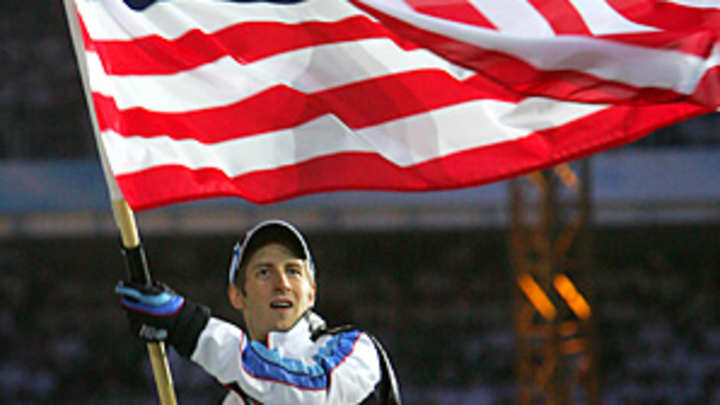Olympic speedskater Joey Cheek has fulfilled education, career goals

So what did the North Carolina native do next? He packed up his skates and went off to college.
Cheek enrolled at Princeton University as a member of the recently graduated Class of 2011 - the culmination of a long-held dream.
"Since I was a kid, even before I was a speedskater, I had wanted to go to a school like Princeton," he said.
At Princeton, Cheek was able to live the life that had previously eluded him during years of training and competition. He became involved in the academic life of the school - "I worked the hardest I've ever worked" - and was surrounded by talented, capable peers.
"Olympians are amazing in the drive that they have for so many years, especially with such uncertain success," he said. "They work very hard and are very bright, but for the most part they focus on their one towering peak of ability. At Princeton, most people have multiple towering peaks of ability."
Cheek's hectic schedule and heavy academic workload could have given him an excuse to isolate himself, but despite the fact that he was almost a decade older than his classmates, he immersed himself in the undergraduate life of the school.
"Coming from a middle class family in North Carolina," he said, "[and] to be able to go to place like Princeton and meet the people I met is almost more important than the education, which is already outstanding."
Cheek's eyes light up when he talks about the friends he made at Princeton, and as he describes them, it's clear that his affection for his classmates is both deep and heartfelt. He's fascinated by interesting people and the stories they have to tell - something that's been true since his days as an athlete.
"I loved being at the Olympic Village and sitting around with athletes from other countries," Cheek said. "I found that every time I met an athlete from another sport and we'd start talking, I was so drawn to the conversation."
In addition to his studies, Cheek spent much of his time at college in support of Team Darfur, an organization he co-founded comprised of athletes who were dedicated to raising awareness of the humanitarian crisis in Sudan. Cheek used the media attention he received after the 2006 Olympics to advocate on behalf of the victims of the war in Darfur and raise money to support aid projects in the region. In 2008 the organization received high-profile coverage when Cheek was denied an entry visa into China to attend the Beijing Olympics, because the country had ties to the Sudanese government.
Having graduated from Princeton this past spring, Cheek, influenced by his friends in the Olympic Village and at Princeton, has turned his attention to sharing his friends' stories with as many people as he can. He recently founded DailyHouse, a website dedicated to providing thorough coverage of sports that the traditional media doesn't fully address - sports like speedskating.
"Three years after I'd won in Torino, I was looking for information on the U.S. Speedskating website, trying to figure out which of my old teammates had made the Olympic team," Cheek said. "I couldn't find results from the trials, and three years earlier I was the gold medalist in speedskating! If I couldn't find information about my own sport the year before the Olympics, there was no one on earth that could. And if I couldn't do it from my sport, there were definitely other sports that were the same."
So far, DailyHouse (the site's name is a play on Daly House, the name of the U.S. Speedskating team's residence in Park City, Utah) has covered sports ranging from surfing to weightlifting to cycling. The stories are written almost exclusively by athletes who have been through the heat of competition, but not in the sports which they are covering. It's a unique angle that Cheek hopes will draw his readers to the site.
"A lot of the sports I want to cover you'll maybe see at the Olympics or the X Games, but then you'll never see it again," Cheek said. "There's not enough time to fall in love with it. I want to bring readers into the lives of these athletes and get them engaged, so that maybe then they'll follow the sport. These athletes' lives are wrapped up in what they do, and they all have incredible stories."
